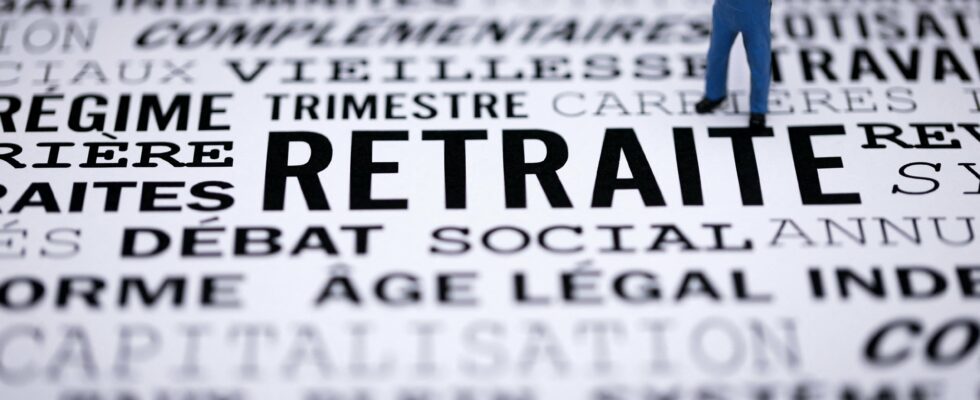In Welcome to the war economy! (Novice), essayist and investor David Baverez envisages the year 2022 as a period of rupture leading to the advent of a “war economy”, where conflict merges business and geopolitics. A new configuration of which he believes that Europe has not taken the measure, unlike the United States.
L’Express: Brussels has imposed customs duties likely to rise up to 38% on electric cars imported from China. Is this not the sign of a change of era in Europe which is adapting to the new situation in commercial relations?
David Baverez: On the contrary, I think they confirm my point. We are in systemic rivalry with China, which wages a price war financed by state subsidies until the West breaks down and goes bankrupt. The United States has defined this state of affairs in 2022 and taken measures accordingly. We still haven’t done it in Europe and don’t know how to act. In the present case, the measure taken by Europe makes no sense compared to the magnitude of the cumulative subsidies received by the Chinese automobile industry, which reach almost 125 billion euros.
By imposing customs duties of an average of 20% on a market for electric vehicles imported from China worth 10 billion euros, we are taxing up to 2 billion euros per year. Not to mention that China is considering, in response, raising customs duties for thermal cars imported from Europe. We arrive at a decision where Europe will not have taxed more than China. Finally, BYD [NDLR : un des constructeurs chinois visé par les droits de douane européens] has recorded production declines of around 18% over the last 12 months and will have no problem absorbing this increase while maintaining a net margin of 8%, which is the dream of many manufacturers .
You estimate that the world has shifted into a “war economy” for two years. Doesn’t this approach to international and commercial relations carry the risk of constant escalation between powers?
The war economy is not war, nor the end of the world, but the end of a world. It is the end of a peace economy driven by demand and the consumer. The war economy is now driven by production and supply. However, the problem is that production has been moved to Asia, which appears to be the big winner. The United States has defined this systemic rivalry. But this new cold war does not prevent trade with China from reaching 700 billion dollars. It is only on high technology, which the United States considered to be the future of the world, that the battle is very heated. In fact, you will note that China did not react to the 100% imposed by the United States on electric vehicles while the 20% in Europe provoked a strong response.
Was China’s response so strong? It could have blocked its exports of certain critical minerals to Europe, which would have had real potential for harm. It was not the case…
In particular, it chose to target cognac, which is our most profitable activity since a bottle produced for a few euros sells for several thousand abroad. In doing so, the message that China is sending is very powerful. It is the triumph of arbitrariness in the sense that China had until now respected WTO rules but today reserves the right to decree that this or that activity constitutes dumping. This is very worrying and Europe has not responded to this problem.
You paint an unflattering picture of a Europe stuck between the United States and China. Does she not have the assets to find a place in the situation you depict? Its domestic market remains enormous, the level of training high, the infrastructure of good quality…
In my opinion, there was a major subject to address during the European campaign, that of the governance of Europe. However, the campaign from which we are emerging has completely ignored it. The former president of the European Central Bank, Mario Draghi, had however expressed in one of his speeches the idea that a radical change was needed in this area. I think we could take inspiration from the Association of Southeast Asian Nations (ASEAN) in terms of governance and at the same time reinvent the social contract for the benefit of young people.
You advocate for an ESG transformation [critères environnementaux, sociaux et de gouvernance] in “energy, security and war”. What does this mean in concrete terms for businesses and governments? What happens to the fight against climate change in this new analysis grid?
These three letters are intended respectively for governments, businesses and citizens. The G of governance becomes that of war. It is up to governments to encourage production and stop artificially maintaining demand. The S in social turns into security. It is aimed at businesses, which must control their operations and transform their dependencies into interdependencies, because we can never be sovereign over everything. Finally, the E in environment is transformed into energy and is aimed at citizens. We must stop lying to Europeans: the energy transition will be long and costly. It will be necessary to invest several PNB points [NDLR : produit national brut, soit la production de richesses d’un pays] per year for twenty to thirty years and it is up to the generation of retirees to ensure financing. This supposes completely reconstructing the social contract of the last thirty years which no longer works, and for example putting an end to thepension indexation.
.
